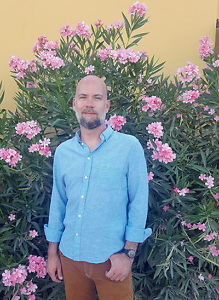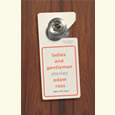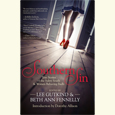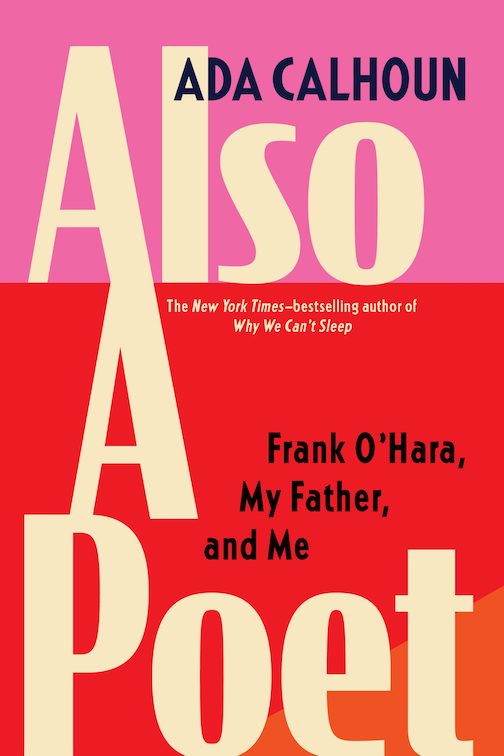Don’t You Dare Say Nothin’
In Odie Lindsey’s Some Go Home, secrets, lies, and myths collide across generations
Early in Some Go Home, Odie Lindsey describes two of his protagonists — JP, an erstwhile Chicago house flipper, and Derby, his construction foreman — sprinkling catfish feed into a pond on JP’s property:

Within seconds, hundreds of charcoal-gray catfish swarmed the surface, scuttling over each other, their white bellies oily in the sunlight as they gasped for feed. The frenzy made the water look like it was boiling. As a second sling of pellets hit, the fish formed a meta-organism of mouth and fin and whisker. Near the banks a few even breached, their bodies wriggling in the mud, oblong mouths agape, until a minute later, as abruptly as they had appeared, the last of the catfish swam back down to the mud bed.
One should not mistake this scene for mere downhome-rural-Mississippi window dressing. It is in fact a vivid metaphor for the central theme of this ambitious debut novel. Below the still surface of the psychic pond, Lindsey implies, hidden things silently swirl, waiting to be summoned, briefly exposing the disquiet and grotesquerie always lurking in the deep recesses of consciousness.
Set in the fictional town of Pitchlynn, Mississippi, Some Go Home is an ensemble piece, but its most endearing character is a familiar one to readers of Lindsey’s acclaimed 2016 story collection We Come to Our Senses. Iraq War combat veteran Colleen, last seen crashing her car into an irrigation tower in the middle of a Mississippi cornfield, is now happily married, keeping house, and expecting twins. It’s clear from the start, however, that Colleen is neither interested in nor equipped for stay-at-home motherhood, and the lingering wounds of the war are not done with her. Her husband, Derby Friar, has his own demons to reckon with: His estranged white supremacist father, Hale Hobbs, is soon to be retried for the murder of a young Black man in 1965. Derby has traded his father’s name for his mother’s in an effort to renounce the old man and his sins, but Pitchlynn isn’t the sort of place where a simple name change erases one’s history.
 Derby’s dilemma is complicated by his role as foreman for JP, who has relocated from Chicago to Pitchlynn to remodel his late wife Dru’s ancestral home, which sits on the property where the murder occurred. The key word here is “remodel,” not restore. Believing Dru’s depression and eventual suicide were instigated by the familial shaming that drove her to leave Pitchlynn years before, JP means to alter the home beyond recognition as a means of revenging himself on her family and the town itself, to whom the house and the massive magnolia tree adjacent to it are sacred monuments honoring a lost and largely mythical past.
Derby’s dilemma is complicated by his role as foreman for JP, who has relocated from Chicago to Pitchlynn to remodel his late wife Dru’s ancestral home, which sits on the property where the murder occurred. The key word here is “remodel,” not restore. Believing Dru’s depression and eventual suicide were instigated by the familial shaming that drove her to leave Pitchlynn years before, JP means to alter the home beyond recognition as a means of revenging himself on her family and the town itself, to whom the house and the massive magnolia tree adjacent to it are sacred monuments honoring a lost and largely mythical past.
Central to the plot are two objects suspended in trees: a crashed Cessna whose unidentified comatose pilot may hold the key to the question of Hare Hobbs’ guilt and a dead pig hung high in the limbs of the fabled magnolia tree, presumably left as some sort of warning to JP. Like the swarming catfish raised to the surface of the pond, the plane and the pig can also be read as metaphors with deep resonance in a story about hidden or repressed trauma and the persistent tensions between the present and the past.
Though secrets abound in Some Go Home, its author makes no attempt to disguise his own ambitions or his consciousness of the territory to which he’s staking his literary claim. Currently a writer-in-residence at Vanderbilt University, Lindsey is himself a veteran, both of Desert Storm and of Faulkner’s Oxford, where he earned an M.A. at the University of Mississippi’s Center for the Study of Southern Culture and worked as a bookseller at the fabled Square Books. It’s not an accident that Lindsey named JP’s suicidally depressed widow Dru — as in Drusilla, widow of Faulkner’s John Sartoris, driven mad at the end of The Unvanquished by her lust for vengeance amidst the turmoil of Reconstruction — or that the land on which Dru’s ancestral home stands has been converted to a golf course, a la the Compson manse in The Sound and the Fury.
There are echoes here as well of later Mississippi luminaries like Larry Brown, Barry Hannah, Steve Yarbrough, and Brad Watson. Lindsey weaves a complex web of narratives and interior struggles. These strands occasionally feel dispersed and unwieldy, but the same is true for every novel of such scope and depth, and faith in Lindsey’s ability to draw the disparate threads back together is amply rewarded. The eruptions of violence which punctuate the novel’s climax are devastating, but more shattering are the psychic wars still being waged in the hearts and memories of the characters when the story draws to a close.
The unsettling and somewhat unsettled conclusion of Some Go Home emphasizes the grim truth that some wounds never heal, and even those that do leave scars. What is clear, however, is that Odie Lindsey has earned his place in the Mississippi writers’ canon, and Some Go Home will be remembered as among the most timely and timeless novels of this troubled and troubling year.

Ed Tarkington’s second novel, The Fortunate Ones, will be published by Algonquin Books in January 2021. His debut novel, Only Love Can Break Your Heart, was published by Algonquin in 2016. He lives in Nashville.


